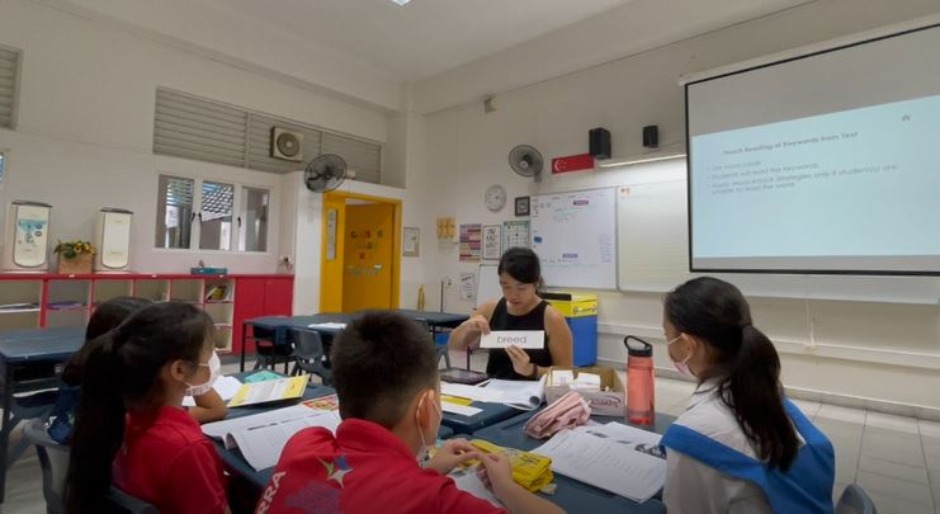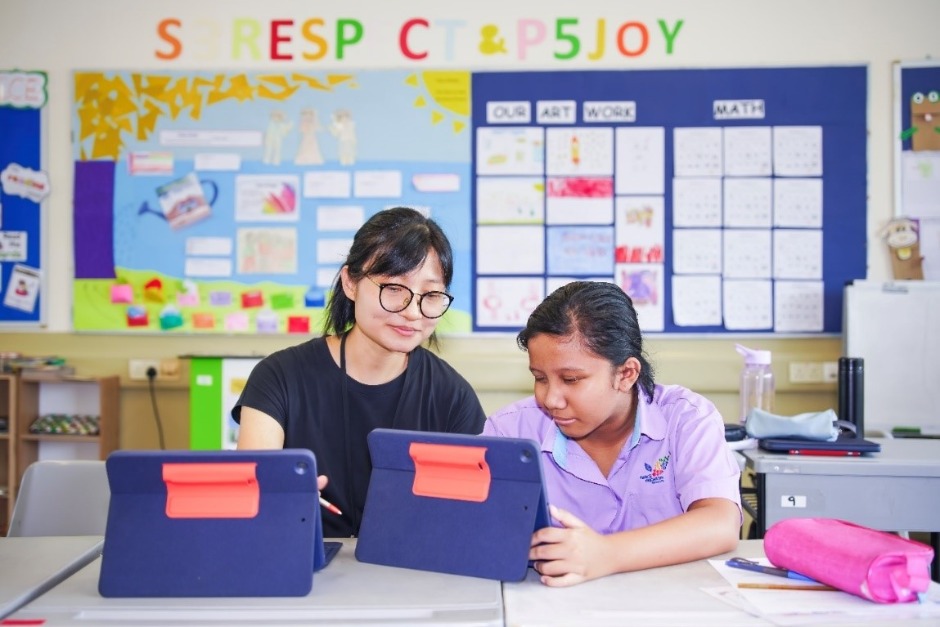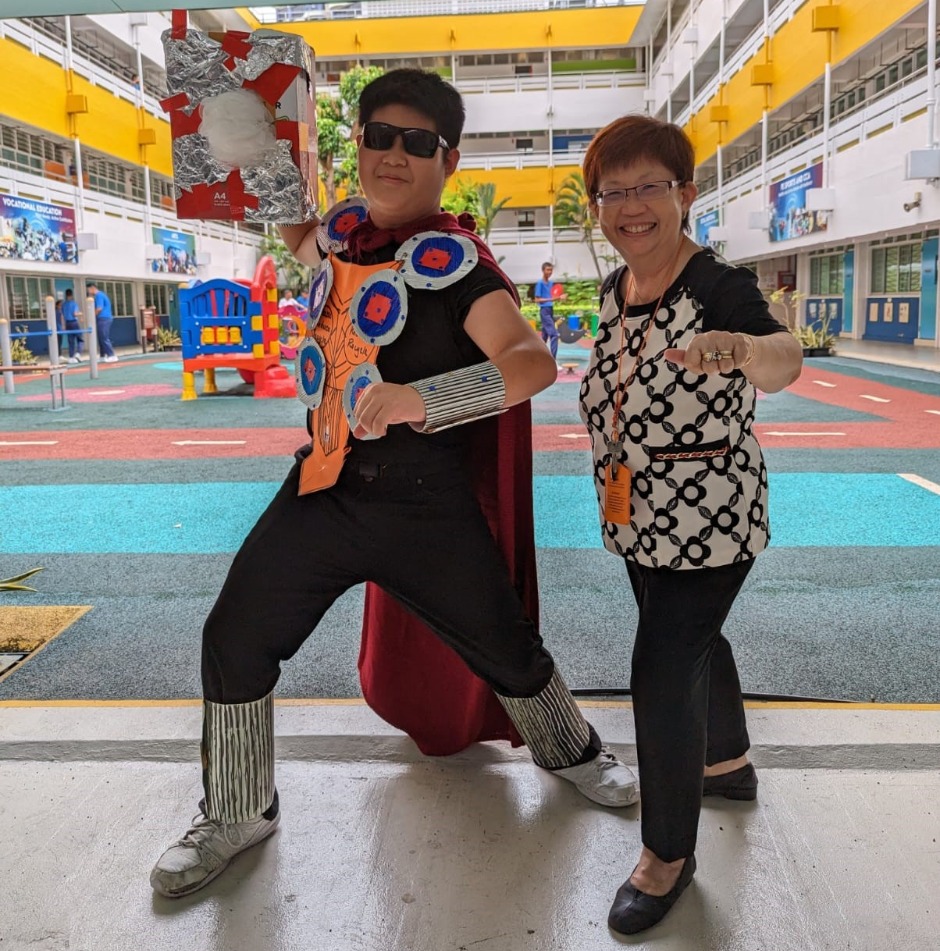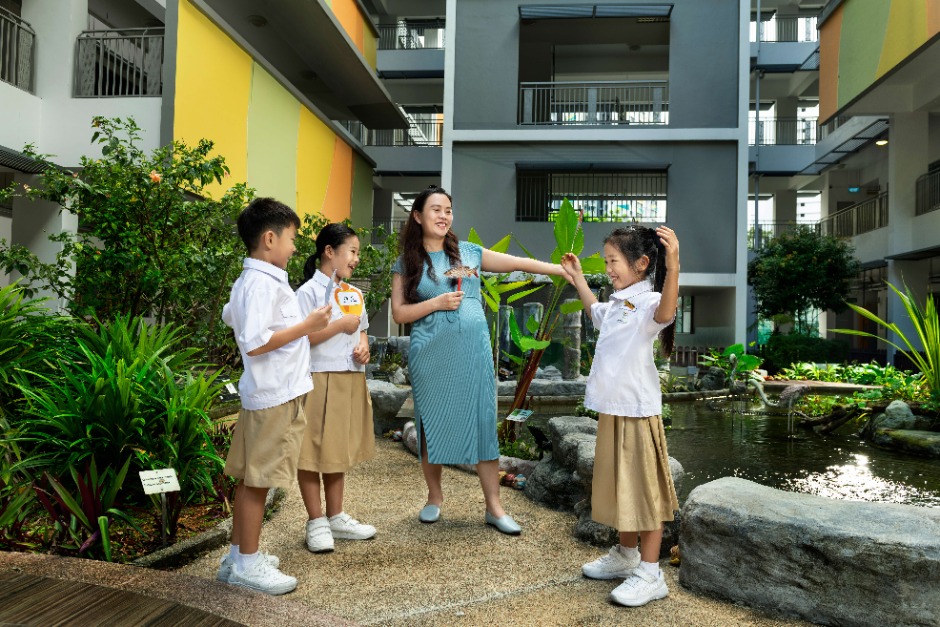We are a Village of Care
19 Aug 2016
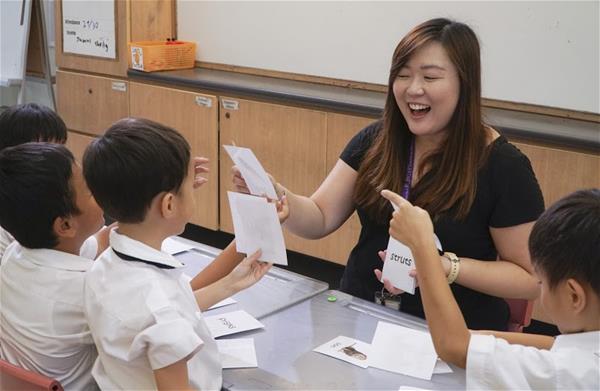
Ms Angeline Chan works with parent volunteers who would like to support students with learning difficulties.
Angeline Chan Xiuwen, Anglo-Chinese School (Primary), Outstanding Youth in Education Award 2016 Finalist
I believe in success for all children. It is this teaching philosophy that guides me as I work with students, including those with special needs, over the years. Their parents send them to school in hope that their children could gain a well-rounded education just like everyone else. To help these children develop holistically and thrive in society, I partnered with the significant adults in their lives, such as their teachers, parents and other community stakeholders.
It takes a village to raise a child
As a school, we believe in leveraging partnerships to strengthen the all-round development of our boys. As Subject Head for Special Needs & Values in Action (VIA), I acknowledge that engagement with various stakeholders such as allied educators and parent volunteers are important driving forces in providing effective support for students. Some parent volunteers act as teacher aides in the classroom to provide additional support where necessary. Currently, in-class support for the first five weeks of term one is provided to all Primary 1 classes to help students transit and adjust to the new environment and faces.
I work closely with a team of committed teacher aides who are scheduled to provide learning support for Sam*, a student in my Primary 1 class. Sam has Down Syndrome and entered school at the age of nine. I was determined to help him with the support of the school community and his parents. When I first welcomed Sam to the class with a cheerful “Hello!”, he gave me the “silent treatment”. Later, I found out from Sam’s mother that he was unable to communicate verbally and was resistant to change. It dawned on me then that there was so little I knew about him and so much others could be expecting out of him. Being in school must be hard on him.
Determined to help Sam settle into the new environment as soon as possible, I put in more effort to get to know him better. I began to pay close attention to Sam and started communicating with him using hand gestures. In addition, I conducted briefings and training to better equip the teacher aides who were supporting my class. We established and reinforced classroom routines and structure to help Sam settle in.
Even without words, Sam was communicating in his own way.
A high five means “I’m happy”.
If he brings you his toiletry bag, it means he wants to go to the toilet.
A big hug means “Thank you”.
I passed on my new found knowledge to others so that they could understand Sam better. Gradually, he became more comfortable with everyone, including his classmates.
He was no longer giving us the “silent treatment”. He opened up and attempted to communicate with us through facial expressions and body movements. I also talked to the class about Sam’s behaviour so that they could relate to him better.
To suit Sam’s strengths and pace of learning, I customised lessons and modified them based on his daily progress. Sam learnt new words through picture and word cards, and could count sequentially from zero to ten. He was progressing at his own pace.
Sam began to grow in confidence. He is now more sociable and shows more interest in his surroundings. He has made new friends and his classmates take turns to buddy him during recess. He no longer needs his brother to accompany him or guide him to the right stall to buy food. The canteen operators were also roped in to support Sam. Together with Sam’s mother, we briefed them on what they had to do should Sam require more assistance while buying food.
Although Sam is still unable to follow some of his classmates’ conversations, he is happy to be around his friends. Owing to concerted support from friends, parents and the community, Sam was able to make impressive progress.
Giving the right support
Together with my allied educators, I work with parents to provide literacy support for lower primary students under the Reading Warriors Programme (RWP). These reading coaches assist teachers in providing daily one-to-one coaching for Primary 1 and 2 students with poor literacy skills.
Ken* was one such student who benefited from this programme. He was struggling to read and write when his teacher enrolled him in RWP. Although his progress was slower than the rest of the students, he persevered with encouragement from his teachers and reading coaches. Through regular progress monitoring, we were able to identify Ken’s learning needs and provide timely intervention to help him. Ken is now a confident reader and his reading age has far exceeded his chronological age.
Every child a concerned and useful citizen
My walk with Sam and Ken drove home the importance of helping each student to take small steps of improvement at the pace that he or she is comfortable with. I want all students to be part of a rich primary school learning environment despite their personal challenges. I believe everyone can blossom and contribute to society. The design of our VIA programme is meant to cater to all students.
To this end, I modified the programme to cater to the various groups of students. Our allied educators offered guidance to those who needed further support to ensure a positive experience and active participation in VIA activities. In this way, all students can contribute and it is gratifying when I see them being independent and giving back to society.
Forging strong partnerships
Teaching students with special needs is a deeply meaningful, moving and reflective experience for me. While there are challenges and struggles, I have witnessed how my students reach out to their classmates who needed assistance, an act of embracing diversity and being inclusive.
I witnessed them becoming more patient and accommodating of one another’s differences. They also treasure the small things in life, having learnt values such as empathy, unity and loyalty. They learnt that true success in life is not measured by accomplishments such as medals and certificates, but by love and small victories.
As a school, we are a part of the village that continually Coaches, Affirms, Relates and Enthuses (CARE) our students, regardless of their background and learning needs. We cannot do this alone. We need to forge strong partnerships with parents and the rest of the community to develop our students.
*Actual name has been changed.

